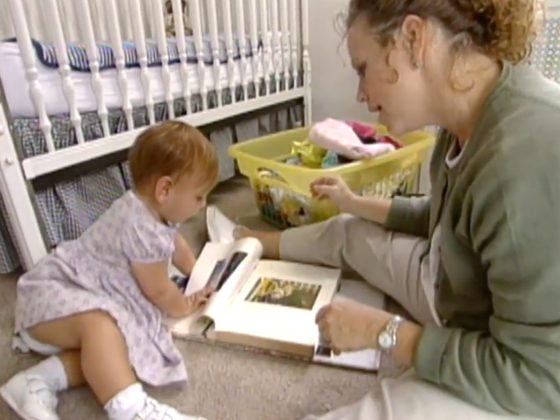
Looking at Books
Books are a great way to bond with children of all ages.
Sharing books (from day one!) can be a special time to bond, expose kids to new words and stories, and understand their interests and personalities.
- With babies, you can look at picture books and create your own story or point out things you see in the pictures. Looking at the same book repeatedly and pointing out the pictures can help babies learn new words and sounds.
- Slightly older kids can help pick out books for you to read together. Giving them a choice encourages independence, and it might also tell a lot about their interests. If they keep selecting books about animals, you know it’s something they’re curious about. This can help you plan other activities, like a trip to the zoo or a nature walk in the park to spot squirrels, worms, and birds.
- Passing favorite books between home and childcare can give kids a sense of security, and it allows them to explore their interests with people who care for them.
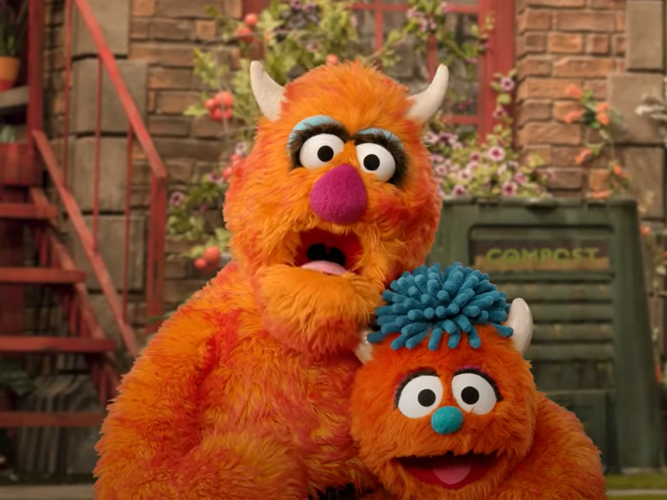
Monster Meltdown
Meltdowns happen… but they are somewhat predictable! As you try to handle them, curiosity and patience go a long way.
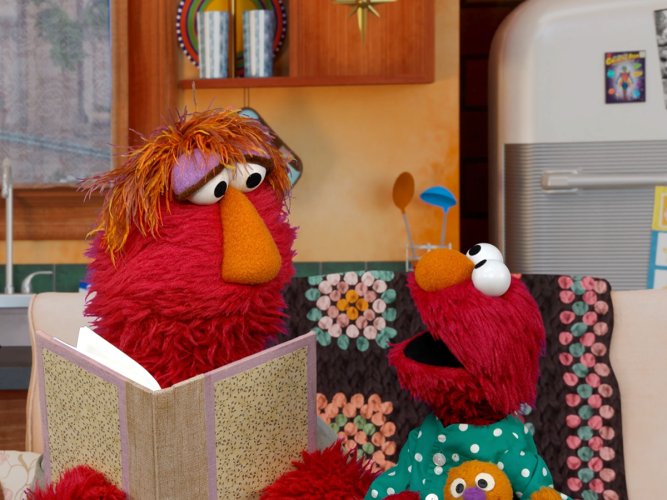
Go To Sleep, Elmo!
Handling a middle-of-the-night monster moment.

The Power of Following Children’s Lead
Joining children in their play offers so many opportunities to encourage, communicate, bond, spark and share joy, teach, show warmth and kindness, and help them thrive.
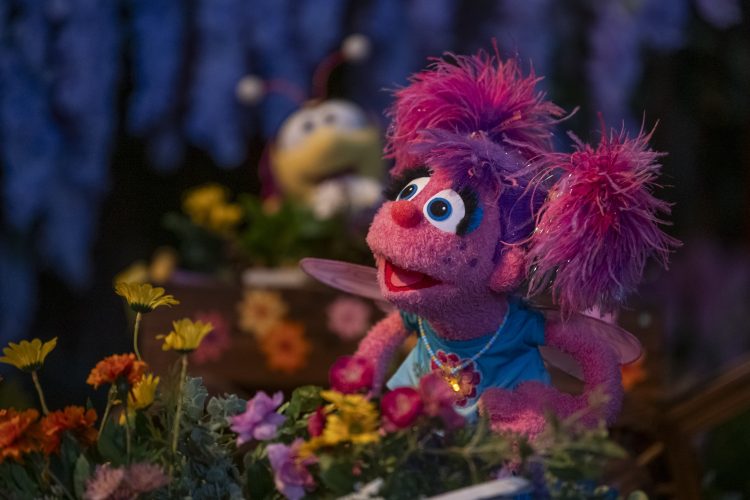
Watch and Play: Abby's Magical Beasties
Watch this episode and explore ways to extend the learning at home.
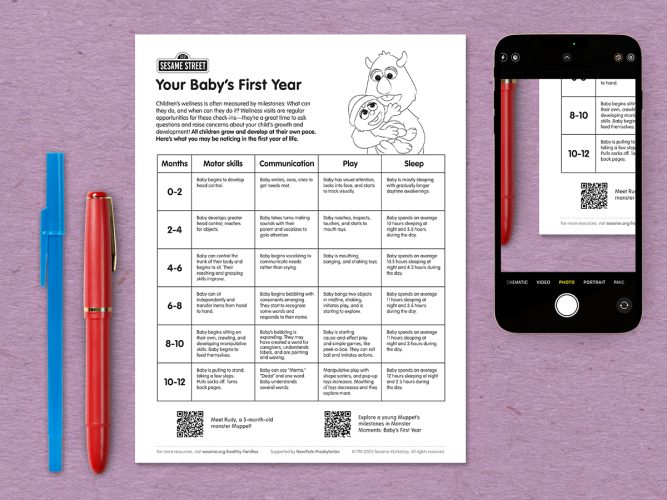
Milestones: Your Baby’s First Year
All children grow and develop at their own pace; use this chart to guide your expectations and observations so you can talk to your child’s pediatrician about questions or concerns.
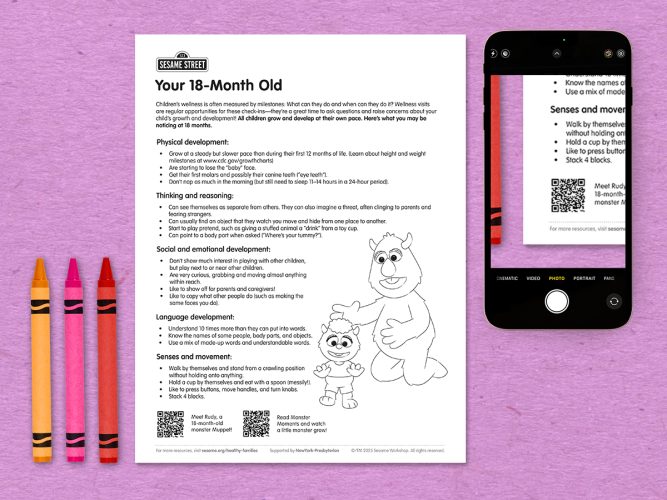
Milestones: Your 18-Month Old
All children grow and develop at their own pace; use this chart to guide your expectations and observations so you can talk to your child’s pediatrician about questions or concerns.
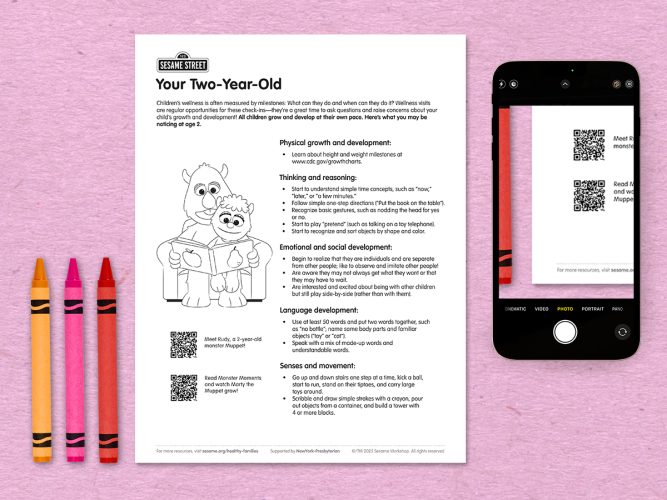
Milestones: Your Two-Year-Old
All children grow and develop at their own pace; use this chart to guide your expectations and observations so you can talk to your child’s pediatrician about questions or concerns.
